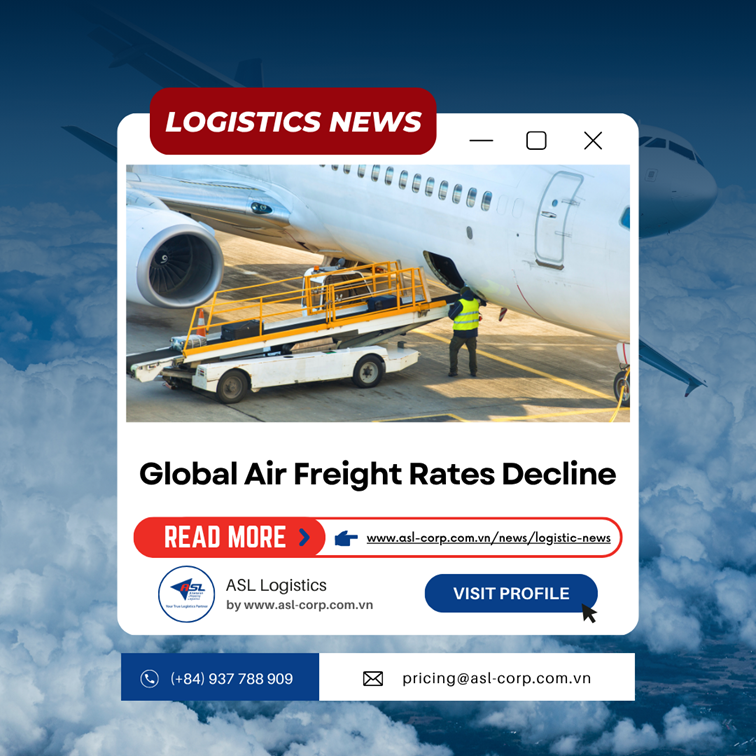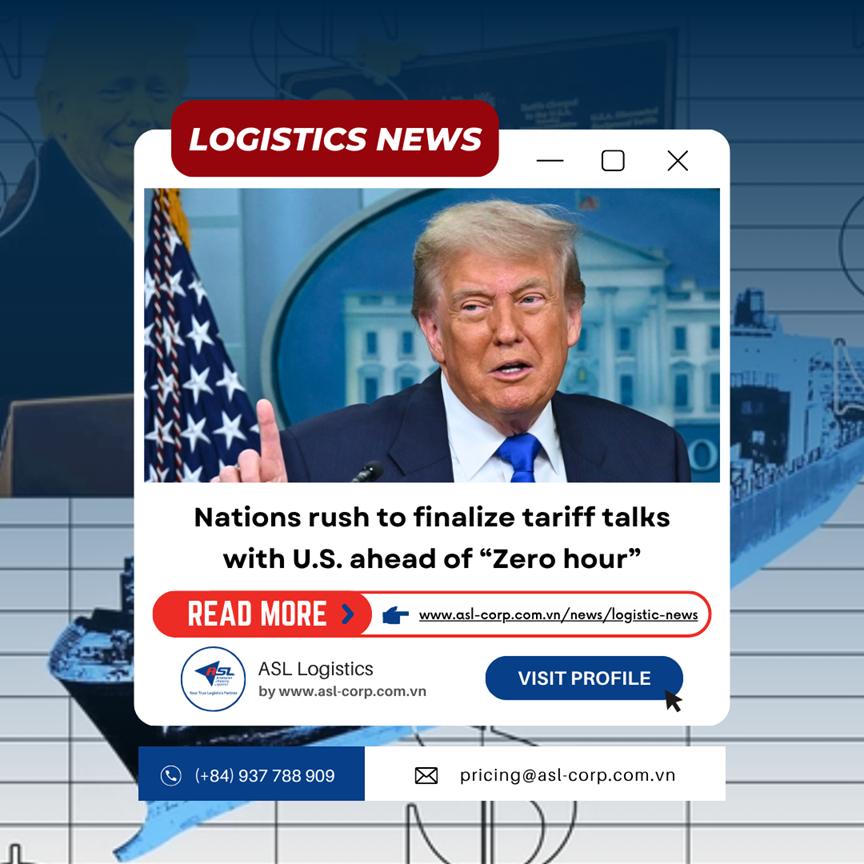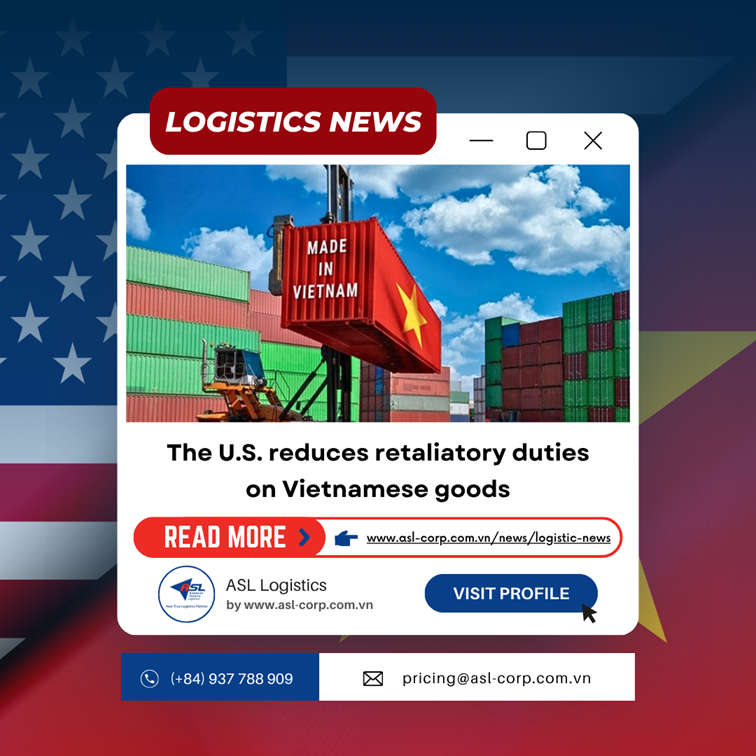Logistic News
EXPLANATION OF THE DRAMATIC INCREASE OF SEA FREIGHT LEADING TO EXPORT ENTERPRISES 'S DIFFICULTIES
25 May 2025
If the Covid-19 pandemic causes transportation prices to spike multiple times in 2021, leading to a global shortage of empty containers and clogged ships carrying cargo, then by 2022, the conflict between Russia and Ukraine affects the global supply chain once more, driving up fuel prices and shipping costs. This effect doesn't stop until early 2024, when tensions in the Red Sea region cause shipping rates to rise and multiple of increased surcharges to be imposed.
When freight rates rise up to five times, export enterprises face significant pressure to strike a balance between costs and customer benefits. Accordingly, the freight rate from Ho Chi Minh City to the main ports of Europe before the Red Sea conflict was about 2,500 USD for a 20-foot container, now it has increased almost by half, nearly 4,000 USD for a same size container. In particular, freight rates for cold goods are doubled compared to the regular one. The total expense for a container of goods going to the United States West Coast has surged by 70%, while frozen goods going to Europe have increased 4 times.
During a period of slowing global economic growth, increases in the prices of small, or slightly fluctuating fees also affect businesses' ability to negotiate and secure contracts. In the words of Mr. Nguyen Quoc Anh, a business representative, fees such as loading and unloading goods, gathering containers is not too big, only about a few hundred thousand dong per container, but there are thousands of other fees such as electricity, gasoline, and carrier security charge, a slight expansion in shipping fees for each type will result in the business overall cost to upsurge greatly, especially logistics costs.
In the coming time, not only will transport routes passing through the Red Sea region increase fees, but other routes will also be in the same situation. Mr. Tran Quoc Manh, Vice Chairman of the Vietnam Handicraft Export Association, said that by the end of 2023, businesses' difficulties have reached the red limit, and now transportation fees and costs are increasing. Thin and weak businesses will immediately collapse due to many subsequent impacts (decreased competitiveness, disputes during contract negotiations, rising commodity prices, inability to get orders...).
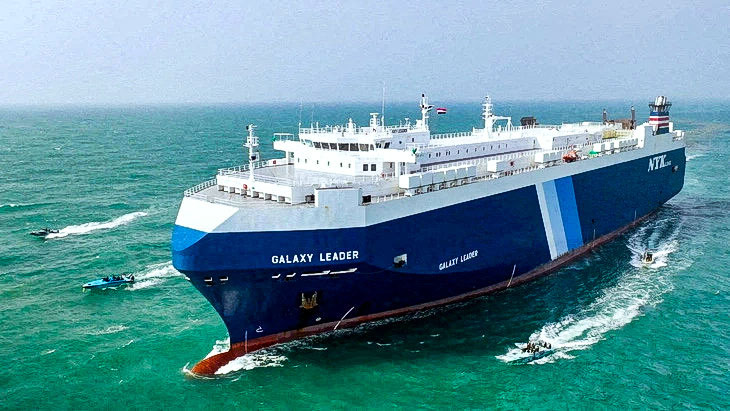
A cargo ship is surrounded by Houthi rebels in the Red Sea
Worth mentioning, when Circular 39/2023/TT-BGTVT of the Ministry of Transport adjusting prices for pilotage services, use of bridges, wharfs, mooring buoys, and container loading and unloading, was just issued on December 25, 2023, from the beginning of February 2024, a series of foreign shipping lines announced a 10 - 20% increase in THC fees (Terminal Handling Charge - port handling surcharge) for each type of container service in Vietnam. In particular, the shipping line's THC fee increase is much higher than the adjusted loading and unloading price of Vietnamese seaport containers.
In this context, the state and relevant agencies need to consider and revise policies to enable favorable conditions to support export businesses overcome difficult times and continue to develop. Businesses need to be proactive and maintain transport connections between Vietnam and the world, avoiding 100% dependence on international transport from foreign shipping lines. Forming a strong container fleet not only simply solves immediate difficulties but also helps businesses cut sea transport costs and improve the competitiveness of Vietnamese goods in the international market.
Minh Phúc

Head Office
ASL Hồ Chí Minh
Số 31/34A Ung Văn Khiêm, Phường Thạnh Mỹ Tây, TP. Hồ Chí Minh, Việt Nam
 Công Ty Cổ Phần Giao Nhận Vận Tải Mỹ Á
Công Ty Cổ Phần Giao Nhận Vận Tải Mỹ Á
 (+84)28 3512 9759
(+84)28 3512 9759
 (+84)28 3512 9758
(+84)28 3512 9758
 pricing@asl-corp.com.vn
pricing@asl-corp.com.vn
 mdirector@asl-corp.com.vn
mdirector@asl-corp.com.vn
 www.asl-corp.com.vn
www.asl-corp.com.vn
LOGISTICS SERVICES










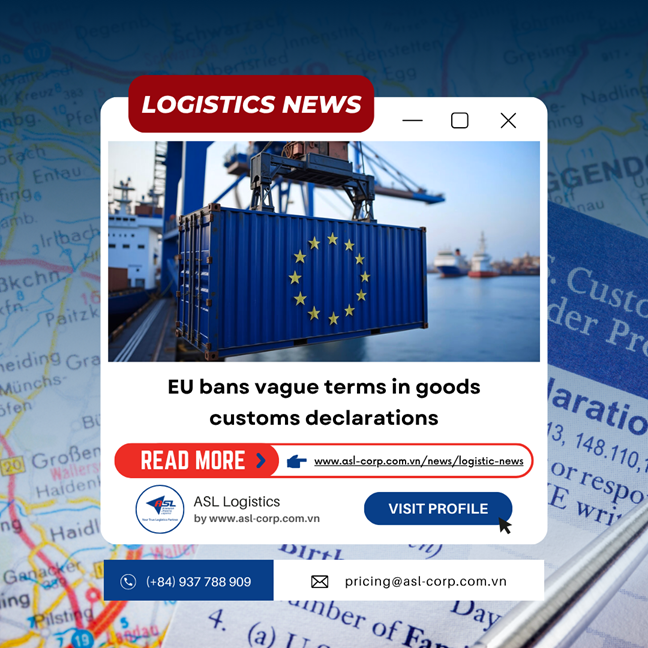
.png)
.png)

.png)

